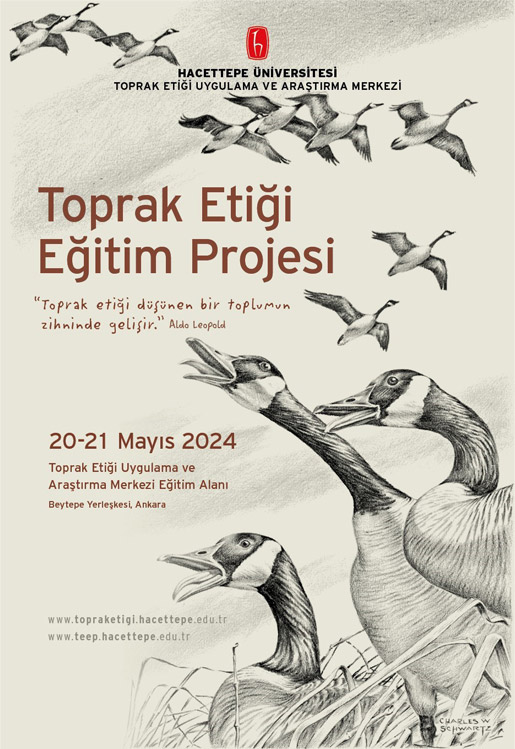Case study: Land Ethics Education Project

Photo acknowledgement: Prof. Dr. Ufuk Özdağ ozdag@hacettepe.edu.tr
- Tertiary/Higher Education
- Outdoor
- Field trip, Workshop / training
- Turkey
Land Ethics Education Project
Established in 2015 at Hacettepe University in Türkiye, the Land Ethics Application and Research Centre carries out practical ecological restoration, research, and education. The Land Ethics Education Project-LEEP (in Turkish: Toprak Etiği Eğitim Projesi (TEEP)), an innovative programme designed to develop a sense of responsibility and respect for the environment, particularly the soil. This certificate programme offers training aimed at enhancing participants’ understanding of nature conservation, biodiversity, and the restoration of degraded lands. The training lasts two days and is complimented by regular additional activities, such as field trips, compost workshops and soil conferences. The programme is open to both students and academics from the university and is delivered in an open-air classroom by five instructors. The content of the Land Ethics Education Project (LEEP) can be summarised as enabling “students to see the soil, understand what they see and appreciate what they understand”.
Objective
The mains objectives of the LEEP are:
- To educate participants on topics such as nature conservation, biodiversity, and land restoration through hands-on experiences in the field.
- To cultivate respect for our natural resources by engaging in activities that promote interaction with the soil.
Approach
According to Prof. Dr. Ufuk Özdağ, Director of the Land Ethics Application and Research Centre, LEEP adopts an integrative approach that recognises the interconnectedness of human beings, nature, and the community. Unlike traditional environmental education programmes, which may focus solely on scientific knowledge, LEEP emphasises the integration of science with values education and ethics. Participants are encouraged to view nature holistically, recognising the inherent value of all living beings, including humans, land, water, flora, and fauna.
What sets LEEP apart from other environmental education initiatives is its explicit focus on ethical responsibility towards the soil and the entire ecosystem, with the programme emphasising experiential learning and emotional engagement with the natural world. Instructors represent a broad range of expertise, and include environmentalists, educators, engineers, and biologists. By incorporating activities that encourage participants to connect with the soil on a personal level, TEEP seeks to inspire a deeper appreciation for the environment.
Link for further information
https://topraketigi.hacettepe.edu.tr/Topraketigiprojeler.shtml
EXPLANATION about the web site: It is the web page of the Land Ethics Application and Research Centre in Hacettepe University-Ankara. It gives information about the center, program, some literature about this approach and Aldo Leopold, and finally is involves some news, events and announcements.
